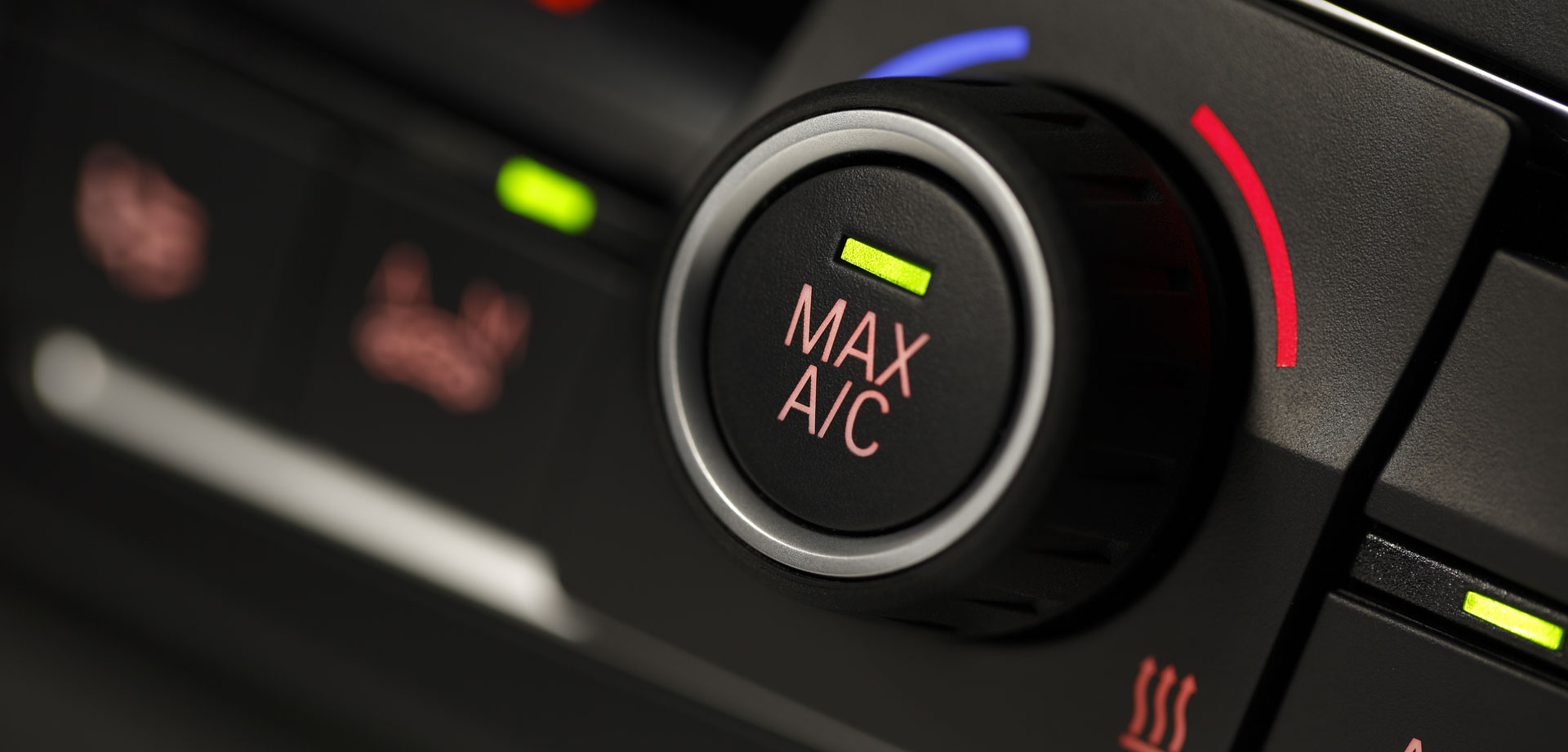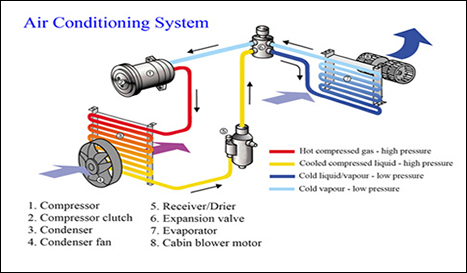 As we start moving into warmer summer temperatures, many of us will be depending on the A/C to make the temperature inside the vehicle comfortable to drive. But you ask, “Do I need my air conditioner serviced if it is blowing cold air?” “Don’t fix it if it isn’t broke” is ringing in my head right now. The other thing ringing in my head is preventative maintenance prolongs the expected life of components with moving parts. You change the engine oil, transmission oil, differential oils, and antifreeze to prolong the life of those components. Why wouldn’t you change the refrigerant (freon) in the A/C system as well?
As we start moving into warmer summer temperatures, many of us will be depending on the A/C to make the temperature inside the vehicle comfortable to drive. But you ask, “Do I need my air conditioner serviced if it is blowing cold air?” “Don’t fix it if it isn’t broke” is ringing in my head right now. The other thing ringing in my head is preventative maintenance prolongs the expected life of components with moving parts. You change the engine oil, transmission oil, differential oils, and antifreeze to prolong the life of those components. Why wouldn’t you change the refrigerant (freon) in the A/C system as well?
First off, isn’t it called freon, not refrigerant? Much like Scotch tape is the name brand of invisible tape or a Sharpie is the name brand for a permanent marker, Freon was the name brand for R-12 refrigerant. R-12 has not been used in vehicles built after the mid 1990’s due to Ozone depleting CFC’s. The replacement refrigerant R-134a was deemed more environmentally friendly, but still took 13 years before it would chemically breakdown and stop harming the atmosphere after being exposed. Beginning in Europe in 2011, R-134a was phased out in favor of a new refrigerant called HFO-1234YF that is even more environmentally friendly for our ozone layer. If leaked into the atmosphere, it will break down chemically in just 11 days. It is still being phased into vehicles built in the US, but many manufacturers are staying on schedule to have HFO-1234YF introduced in their entire fleet by 2020.
The refrigerant in the A/C system has two main jobs: help cool the air inside the vehicle and carry lubricate to the compressor. Much like engine oil keeps the engine lubricated and cool, refrigerant does the same thing for the A/C compressor. As the system gets low on refrigerant, it lessens the amount of lubricant carried to the compressor and reduces the amount of heat that the refrigerant can carry away from the compressor. Heat will not only cause the efficiency of the A/C system to go down (it will not blow as cold), but heat can also cause damage to the A/C compressor. Heat in a moving component can cause premature breakdown and failure.
Did you know that A/C systems can lose up to 20% of the system’s refrigerant before it will stop working? There are many different connections to go through all the different components of the A/C System: Compressor, Condenser, Receiver/Dryer, Expansion Valve, Evaporator, High Side Service Port and Low Side Service Port. Any one of these components or the aluminum connections in between could develop a slight leak that could affect the performance of the A/C System.
How often should I get my A/C serviced? If your vehicle is ten years old or older, it makes sense to have it serviced every year. If your vehicle is two to nine years old, it makes sense to have it serviced every two to three years.
What does an A/C service involve? At Quality Tune Up Car CAre Centers, we perform an A/C Performance Test. This includes checking all the belts, hoses, and components of the A/C system for operation and visible leaks. We also evacuate all the freon out of the system and measure the amount of freon that was present when we started. While the refrigerant is being evacuated it goes through filters to remove any condensation and oils. Then we take teh system down to -30 PSI or a vacuum state. If the A/C system holds -30 PSI vacuum for 5 minutes, then we recharge the system with the correct amount of refrigerant and compressor oil. Most sytems these days use a pound to pound and a half of refrigerant to fully recharge.
What if there is a leak in the system? In most cases, the A/C system would not be cooling the vehicle down before you came in. A leak would be confirmed during the vacuum leak test. A leak will allow air back in the system, so it will not be able to hold the -30 PSI vacuum. By law it is illegal to recharge an air conditioner system that has a known leak. Repair of the leak would need to be completed before we are able to charge the A/C system with refrigerant. The only component that a vacuum leak test might not detect a leak is the A/C compressor. The reason is that the A/C compressor is a moving component and might have a leak in a different part of the moving cycle. Although you can deduce the compressor is leaking if the vehicle is low on refrigerant, but passes the leak test, that is not always the case. The best way to find out where the leak is coming from is to recharge the system and add a dye into the system. When the system leaks, that dye will show the location of the leak or leaks.
Most vehicles under ten years old just need an A/C Performance Test and Refrigerant Recharge. We are happy to get your A/C performing at its peak performance. Come in today, no appointmnet needed.